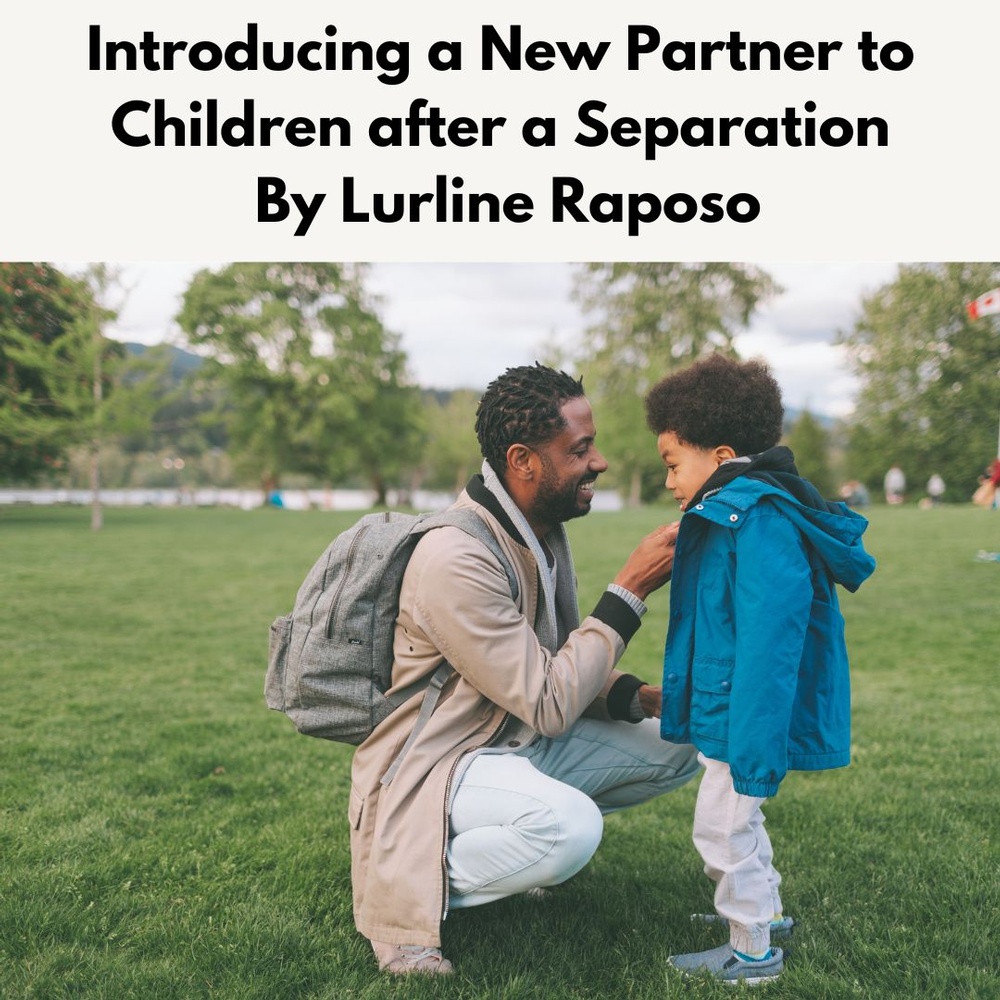
Introducing a New Partner to Children after a Separation
- Allius Counselling and Family Mediation Services
Categories: child counselling , coparenting , counselling for children with divorced parents , counselling for coparents , divorce support , separation support
When I have discussed new partner introductions with parents throughout my years of working with separated parents, most do not agree with my guidelines. This is not based on any specific family but reflects my experience where parents introduce their children to dating partners far too soon after they engage in their new relationship. Navigating these new relationships can be complex and if integrating children into this can increase the challenges. Parents should know their new partner for at least a year and have been out of their last relationship for at least two years. Most people believe that they have finally found that ideal match, but that was also what they thought about the last partner. It is well-understood that relationships go through a honeymoon period. During this time, the new dating relationship feels great, and this is often so enticing after leaving all the negative experiences with your former partner. This new relationship provides even more reinforcement when the divorcing parents are experiencing high levels of conflict which is common as they are trying to settle their legal separation. The distraction of the divorce can cause blind spots for what is not working in the new relationship. Research indicates that the first serious relationships after a separation are typically just as bad or can even be worse than the one people left. It is difficult to wait, parents tell me, especially if the children get along with the new partner or their children. However, kids may be feeling a lot of unnecessary pressure while they are still adjusting to the new family composition caused from the separation.
Children at all ages experience significant grief and loss following a family separation. They must adjust to living in two homes, sometimes changing schools, navigating information between their homes and changes to the socioeconomic situation. The biggest risk is this new romantic partnership ends and children are left to experience another loss. The sadness and confusion from another loss causes kids to become distrustful of the next dating partner they get introduced to. Children require more one-on-one time with each parent after a separation which is in direct competition with the new romantic relationship that requires a lot of time and attention. Children are often feeling jealous and neglected with the new partner or their children around. When the children begin discussing the new partner and their kids in front of their other parent, they may experience negative reactions and get exposed to unnecessary conflict between their parents. Kids assume they have caused these problems. It could impact healthy co-parenting communication and mediating a settlement if one parent is not yet dating. It is not recommended that children be encouraged to call any new partner some version of Mom or Dad since they already have two parents. It does not matter if you marry them, or they have other children who are calling them Mom or Dad. This opens the door to resentment for the existing parents.
Why do so many parents want to rush these new partner introductions? Usually because the parent does not have enough free time to date so it is simply easier and more convenient. Sometimes this happens because parents become lonely as a single parent, especially when the kids are with the other parent. Some parents are uncomfortable in their single parenting role and the responsibilities that they now must take care of alone. Some parents say that they are wanting their children to experience a better role model than they have with their parent. Most people crave what feels like a return to normal family life and a partner can offer this. Adults are welcome to pursue their dating relationships but as parents, they should avoid exposing children to their dating catastrophes and dysfunctional relationships. It takes a year for most couples to experience each other at their worst. If there are arguments and the new couple can successfully find a solution without causing harm to each other, then that relationship has a better than 50% chance of success long term. This extra time allows kids to accept that their parents will not be getting back together. Most children after this longer period of time are supportive of parents having a new partner. I ask parents to resist that urge to jump back into a relationship to block out the pain of the failed relationship. Take time to enjoy your children, adjust to the new situation and find closure on the unfinished emotional business from your last relationship.
If you want support in finding closure after your divorce or separation or you feel your children are struggling to adjust, please reach out to Allius Services Inc. for more information and guidance.
